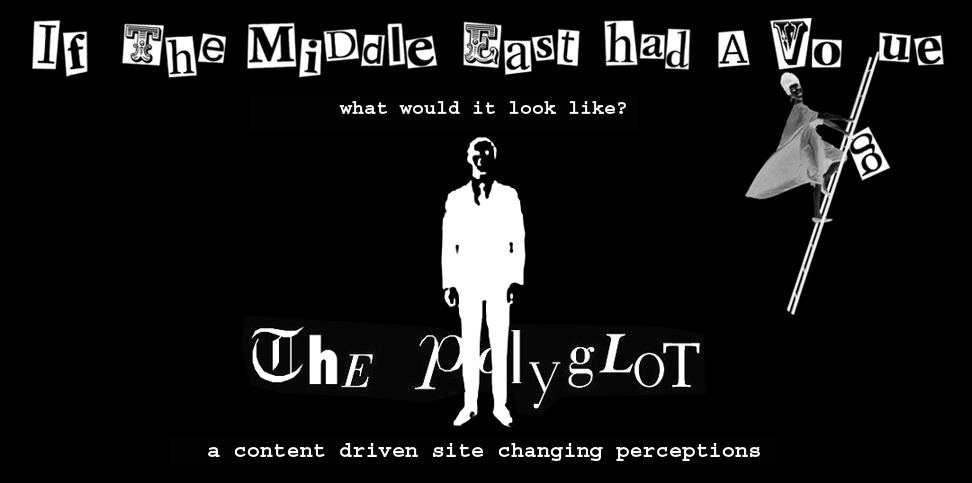 You live in Brooklyn, an area of the city that is home to artists and designers alike. What is it about living there that attracted you to the area?
You live in Brooklyn, an area of the city that is home to artists and designers alike. What is it about living there that attracted you to the area?After living in the hustle and bustle of Manhattan for 10 years, Brooklyn was perfect - much more relaxed and serene, with its own unique flavor. It feels more like home here and its wonderful interacting with the people who have lived here most of their lives, I've heard many inspirational stories.
It’s interesting that you don’t see that many women from the Gulf let alone Bahrain emerging on the contemporary art scene. Do you think there is a lack of appreciation or understanding in general for contemporary art?
In the past decade the art scene in the Gulf has boomed, which is wonderful for the region, though I feel that contemporary art is still not as appreciated or understood as it could be. Recently I've seen quite a few women artists emerge from the Gulf, very talented ones. But that's just a fraction of the women in these societies, there is a lot more hidden talent, and I would urge women to express themselves and step out into the public with their work.
 It’s often said that Arab parents would much rather see their children become doctors or lawyers rather than artists. Do you think that’s one of the challenges facing Arab women who want to go into photography? For a lot of these individuals is there a pressure to make it big outside their own countries before they gain recognition from them?
It’s often said that Arab parents would much rather see their children become doctors or lawyers rather than artists. Do you think that’s one of the challenges facing Arab women who want to go into photography? For a lot of these individuals is there a pressure to make it big outside their own countries before they gain recognition from them?I think it was definitely much harder when I was growing up for parents to accept the choice to study photography as opposed to becoming a lawyer, doctor, etc. In general, they did not comprehend how such a skill would be useful in our society. I was fortunate enough to have had a family that accepted my choice. It's easier now for parents in our region to accept art as a profession, yet, it's still a small market of people that chose to be artist. It's still harder as a woman for the mere fact that a lot are not given the opportunity to study abroad and experience what the rest of the world has to offer for inspiration.
The West usually tends to portray women from the Gulf as living these very sheltered lives, but one of the untold stories is that for decades there have been generations of Gulf women who have studied, worked and lived abroad. Yet you don’t hear that much about their lives, straddling two worlds and this tug of war between tradition and modernity. In the last couple of years we’ve begun to see film makers, writers and artists exploring the Arab Diaspora. As a photographer is this the kind of subject you would consider exploring?
Yes, absolutely. And the fact that there are women from the region becoming recognized for their talents is extremely positive and long overdue. I would say that the climate in the region in general does not foster women to publicly express their creativity, and it is wonderful to see that this is changing.
 You recently returned from a trip to Africa. Can you talk about your most memorable experience there and some of your future shows and projects?
You recently returned from a trip to Africa. Can you talk about your most memorable experience there and some of your future shows and projects?Surviving tick bites, a nasty spider bite, and mosquitoes was one experience that I could have done without but it was all worth it. One of my most memorable moments was being at a Sangoma [African Shaman] village in South Africa. I did not realize what that trip entailed until we got there. We had to climb down a mountain to get to this isolated place, and I have an extreme fear of heights! Somehow I managed- I had to, but once we got there, it was magical. They were having an initiation ceremony and it was mesmerizing: the drumming, the chanting, the ones being initiated in a frenzy of non stop dancing until they almost fainted! The next day we had to return the same way, but up this time, and it was just unbearable for me. But that same evening, the head Sangoma came over to me and placed a special belt around my waist and said: "This is for conquering your fear". Somehow he knew.
This past year I have been focusing more on creating work, rather than on shows. With the New Year coming, I'll be ready to showcase some new work. I would love to have more shows in Bahrain and in that region. Also, in the next year I will be travelling to Central and Eastern Europe. There is a major problem there with institutionalizing people who have disabilities, and I have the opportunity to work there- but not to show the horror, to show the humanity and how people with disabilities can live in their local communities when they get the support they need.
© THE POLYGLOT (all rights reserved) CHICAGO-PARIS

No comments:
Post a Comment